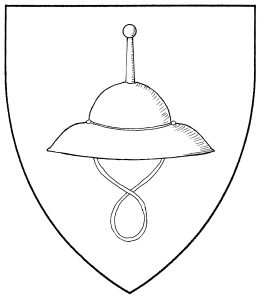Contributor(s): Shared on: Categories: Tags: | Source (Hebrew) | Translation (English) |
|---|
לַמְנַצֵּ֗חַ מִזְמ֥וֹר לְדָוִֽד׃ |
Conductor, this David song
is to be accompanied with instruments. |
יַֽעַנְךָ֣ יְ֭הֹוָה
בְּי֣וֹם צָרָ֑ה
יְ֝שַׂגֶּבְךָ֗ שֵׁ֤ם ׀
אֱלֹהֵ֬י יַעֲקֹֽב׃ |
May YaH answer you
when you are overwhelmed;
May you rise above your distress
in the name of Jacob’s God. |
יִשְׁלַֽח־עֶזְרְךָ֥
מִקֹּ֑דֶשׁ
וּ֝מִצִּיּ֗וֹן יִסְעָדֶֽךָּ׃
יִזְכֹּ֥ר כׇּל־מִנְחֹתֶ֑ךָ וְעוֹלָתְךָ֖ יְדַשְּׁנֶ֣ה סֶֽלָה׃ |
From that sacred source,
may He send your help to you,
may He support you from Ẓion,
may He remember all your contributions. |
יִֽתֶּן־לְךָ֥ כִלְבָבֶ֑ךָ
וְֽכׇל־עֲצָתְךָ֥ יְמַלֵּֽא׃ |
May your whole-hearted devotion
give you all the strength you need.
May He grant your heart’s desire;
may all your designs thrive. |
נְרַנְּנָ֤ה ׀ בִּ֘ישׁ֤וּעָתֶ֗ךָ
וּבְשֵֽׁם־אֱלֹהֵ֥ינוּ נִדְגֹּ֑ל
יְמַלֵּ֥א יְ֝הֹוָ֗ה כׇּל־מִשְׁאֲלוֹתֶֽיךָ׃ |
We will celebrate your healing;
we will raise flags of gratitude to God.
Yes, may God grant all your needs. |
עַתָּ֤ה יָדַ֗עְתִּי כִּ֤י הוֹשִׁ֥יעַ ׀ יְהֹוָ֗ה מְשִׁ֫יח֥וֹ
יַ֭עֲנֵהוּ מִשְּׁמֵ֣י קׇדְשׁ֑וֹ
בִּ֝גְבֻר֗וֹת יֵ֣שַׁע יְמִינֽוֹ׃ |
I know now that God will help His anointed,
with power at His right hand,
answering him—from His sacred abode. |
אֵ֣לֶּה בָ֭רֶכֶב
וְאֵ֣לֶּה בַסּוּסִ֑ים
וַאֲנַ֓חְנוּ ׀
בְּשֵׁם־יְהֹוָ֖ה אֱלֹהֵ֣ינוּ נַזְכִּֽיר׃
הֵ֭מָּה כָּרְע֣וּ וְנָפָ֑לוּ
וַאֲנַ֥חְנוּ קַּ֝֗מְנוּ וַנִּתְעוֹדָֽד׃ |
So what if they attack
with horses and chariots?
All we need to do is
mention God’s name
and they will be subdued and surrender;
we will rise up and cheer. |
יְהֹוָ֥ה הוֹשִׁ֑יעָה
הַ֝מֶּ֗לֶךְ יַעֲנֵ֥נוּ
בְיוֹם־קׇרְאֵֽנוּ׃ |
YaH, help;
King, answer us today,
as we call out to You. |
Rabbi Zalman Schachter-Shalomi’s translation of Psalms 20 was first published in Psalms in a Translation for Praying (Alliance for Jewish Renewal, Philadelphia: 2014), p. 30. Reb Zalman was, in 2009, an early advocate of the Open Siddur Project and generously shared his liturgical and prayer work with the project following his vision of a common “Database Davvenen.” I have set his translation opposite the Masoretic Hebrew text of the psalm according to the phrasing he provided. –Aharon Varady
 Rabbi Dr. Zalman Meshullam Schachter-Shalomi, affectionately known as "Reb Zalman" (28 August 1924 – 3 July 2014) was one of the founders of the Jewish Renewal movement. Born in Żółkiew, Poland (now Ukraine) and raised in Vienna, he was interned in detention camps under the Vichy Regime but managed to flee the Nazi advance, emigrating to the United States in 1941. He was ordained as an Orthodox rabbi in 1947 within the ḤaBaD Hasidic movement while under the leadership of the sixth Lubavitcher Rebbe, Yosef Yitzchok Schneersohn, and served ḤaBaD communities in Massachusetts and Connecticut. He subsequently earned an M.A. in psychology of religion at Boston University, and a doctorate from the Hebrew Union College. He was initially sent out to speak on college campuses by the Lubavitcher Rebbe, but in the early 1960s, after experimenting with "the sacramental value of lysergic acid", the main ingredient in LSD, leadership within ḤaBaD circles cut ties with him. He continued teaching the Torah of Ḥassidut until the end of his life to creative, free and open-minded Jewish thinkers with humility and kindness and established warm ecumenical ties as well. In September 2009, he became the first contributor of a siddur to the Open Siddur Project database of Jewish liturgy and related work. Reb Zalman supported the Open Siddur Project telling its founder, "this is what I've been looking forward to!" and sharing among many additional works of liturgy, an interview he had with Havurah magazine in the early to mid-1980s detailing his vision of " Database Davenen." The Open Siddur Project is proud to be realizing one of Reb Zalman's long held dreams. The Mesorah (Heb: מָסוֹרָה) a/k/a, the Masoretic text is the authoritative Hebrew and Aramaic text of the TaNaKh for Karaite and Rabbinic Judaism. It was primarily copied, edited and distributed by a group of Jews known as the Masoretes between the 7th and 10th centuries CE. The Masoretic Text defines the Jewish canon and its precise letter-text, with its vocalization and accentuation known as the Masorah. David ben Yishai was the second king of the United Kingdom of Israel and Judah, reigning ca. 1010–970 BCE. While almost half of the Psalms are headed "l'David" and tradition identifies several with specific events in David’s life (e.g., Psalms № 3, 7, 18, 34, 51, 52, 54, 56, 57, 59, 60, 63 and 142), most scholars consider these headings to be late additions and that no psalm can be attributed to David with certainty. 1 Samuel 16:15-18 describes David as a skillful harp (lyre) player and "the sweet psalmist of Israel." Read a comment / Leave a comment (moderated) Works of related interest: |











Leave a Reply